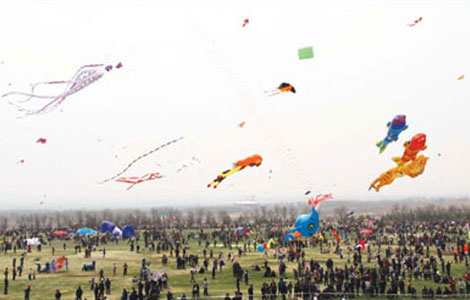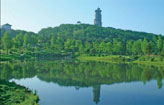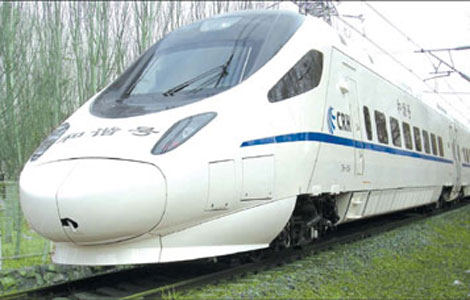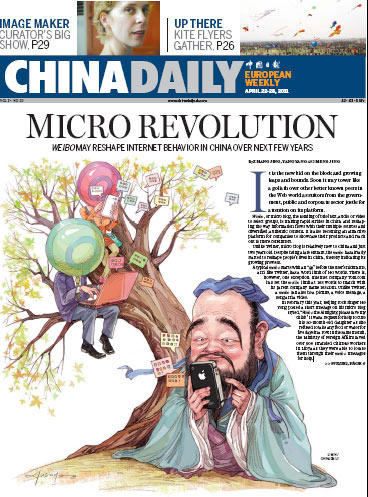Movies
'Water for Elephants' a lost opportunity
Updated: 2011-04-25 09:48
(Agencies)
LOS ANGELES - A decorous, respectable adaptation of Sara Gruen's engaging best-seller, "Water for Elephants" would have come more excitingly alive with stronger doses of Depression-era grit and sexual spunk.
The 1931 circus setting and a love triangle involving three exceedingly attractive people provides a constant wash of scenic pleasure and the film's fidelity to its source will receive nodding approval from the book's many fans. But the vital spark that would have made the drama truly compelling on the screen is missing. The Fox release earned about $17.5 million during its first weekend in North American theaters.
Films about traveling circuses, and the often daring and dodgy people who worked in them, used to be relatively commonplace in American movies and it could be that the novelty of seeing such a troupe, traveling from one town to another on a train with dozens of performers, workers and lots of animals in tow, might be enough to captivate a fair share of people today, just as Gruen's 2006 novel did.
Furthermore, the central dilemma -- that of a beautiful woman caught between her debt to the circus impresario who plucked her from a dismal existence to make her a circus star as well as his wife and her mounting passion for a handsome young man who escapes a personal tragedy by joining the company -- may be well-worn but can always work in the right hands, and Reese Witherspoon, Robert Pattinson and Christoph Waltz are all more than up to the task.
So it's mostly a question of approach. Had the same story been made at the time it's set, one can easily imagine at least two distinct and equally effective potential takes on the tale: One, directed by Frank Borzage at Fox, could have been a exalted love story between two young people fated to be together despite the obstacles, while another, directed by Michael Curtiz at Warner Bros., would have been a punchy, down-and-dirty affair about lowlifes scraping by during the depths of the Depression.
In fact, had screenwriter Richard LaGravenese, who's done a mostly fine job whittling down the novel to fit comfortably within two hours' running time, settled in to watch a dozen early-1930s Warner Bros. films before writing, some hints of period slang, brassy attitude and regional accents might have profitably made their way into the chatter to provide an idea of the different vernacular in use then. Even a tiny change -- the man informing Pattinson's character of his parents' death at the outset states they were in a "car" accident rather than an "automobile" mishap, as in the book -- reveals a trace of fear about the receptivity of a modern audience to antiquated speech. And in those days, indelible character actors would have brought to life a score of insolent, wise-cracking, phrase-making secondary parts with just a few lines apiece.
Under Francis Lawrence's sleekly studied direction, everything has been smoothed out to the extent that even dire poverty does not seem entirely unappealing. Certainly the three leads never do. Looking 300 per cent better than he did in his last non-"Twilight" outing, "Remember Me," Pattinson is entirely convincing as Jacob, a Cornell veterinary school student who escapes from the ruin provoked by his parents' untimely death by almost inadvertently joining the circus.
Due to his imagined expertise with animals, Jacob is taken under wing by the owner and ringmaster of the Benzini Bros. Circus, August (Waltz), a mercurial fellow who's brought the company a long way since he took over and rightly keeps a watchful eye on his beautiful blond wife Marlena (Witherspoon), who rides the circus' top animal attraction, a stunning white horse.
Embraced and roughly treated by turn, Jacob earns a place with the outfit due to his knowledge of animals (his father had been a vet) and his help in recruiting and training a new star, a jumbo elephant named Rosie. Something of a highbrow himself, August delights in the college boy's company but can't help but notice the growing affection between his wife and the bereaved lad.
Although there are skirmishes from time to time, it takes nearly the entire film for matters to fully come to a head and the lack of complexity, danger and underlying tension becomes all too noticeable from the mid-point onwards. Once the climax does arrive, the spectacular scene is over and done with far too quickly, giving it a borderline perfunctory feel.
Waltz, in his first big film since soaring to prominence in "Inglourious Basterds," again scores strongly as a powerful middle-aged man who doesn't eliminate the snake in his grass before it's too late. As for Witherspoon, she's as fetching as ever as the platinum blonde any guy would want to catch. But when August insults Marlena as being of a "common type," it's clear Witherspoon needed to inject a bit of Jean Harlow into her characterization to emphasize the lower depths whence she came that can never be entirely erased. Despite the hard glances and suggestion of a working class accent, Marlena is still a shade too much the lady and not enough of a dame.
Hal Holbrook does a nice job framing the tale as an elderly Jacob telling the story to a modern circus worker, although by rights he should be narrating the whole thing, not Pattinson; again, modern audience sensibilities likely came into play.
Craft contributions are excellent, notably Rodrigo Prieto's lustrous cinematography, Jack Fisk's highly realized production design and Jacqueline West's resourceful costumes.
E-paper

Blowing in the wind
High-Flyers from around the world recently traveled to home of the kite for a very special event.
Image maker
Changing fortunes
Two motherlands
Specials

Models gear up car sales
Beauty helps steer buyers as market accelerates.

Urban breathing space
City park at heart of Changchun positions itself as top tourism attraction

On a roll
Auto hub Changchun also sets its sight on taking lead in railway sector
